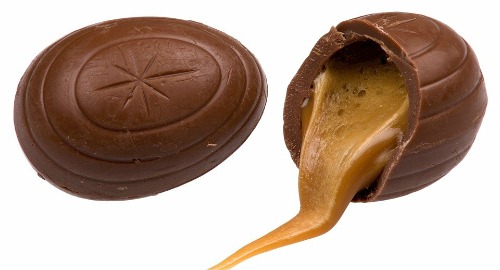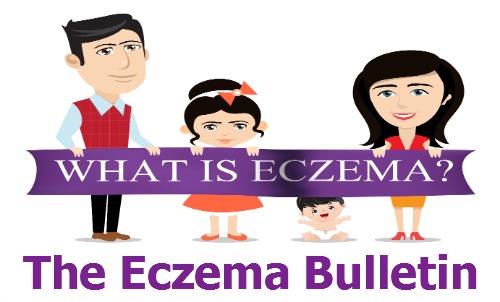
Issue #045 - Paraben Allergy
Welcome to April's edition of the Eczema Bulletin e-zine, and thank you for subscribing.
This is the 45th edition of the Eczema Bulletin. It will bring you articles and news about eczema, and also any updates to what-is-eczema.com. If you would like to add any suggestions for articles or news, or even add your own then I would love to hear from you.
You can contact me here
This month's Eczema Bulletin includes
- April's Featured Article – Paraben Allergy
- My favourite eczema news article
- Tip of the Month
- 5 Ways To.....get more Vitamin D
Paraben Allergy
So, what are parabens and how can they affect your eczema?
There are many products that contain parabens as a preservative to prevent the growth of bacteria. When used in products a paraben mix is used. These mixes contain a mixture of up to five different paraben esters.
Most products contain a mix of two or more of these esters:
- methylparaben
- ethylparaben
- propylparaben
- butylparaben
- benzylparaben
Some popular products that contain parabens include
- Cosmetics – concealers, lipstick, eye make-up, facial make-up, make-up remover and nail products
- Body products – deodorants, hair products, soap, toothpaste, moisturisers and sun protection
- Medical items – bandages, topical skin creams and ointments and ear, eye and nose drops
- Food – mayonnaise, jam, dressings, soft drinks and sweets and candies
This list gives a small insight into
where parabens may appear in everyday items. The best way to check if your favourite products contain parabens is to check the label.
Labels tend to have some long words on them that can look a bit daunting. Some of the alternative names to look out for are:
- Benzyl-parahydroxybenzoate (p-hydroxybenzoate)
- Butyl-parahydroxybenzoate (p-hydroxybenzoate)
- Ethyl-parahydroxybenzoate (p-hydroxybenzoate)
- Methyl-parahydroxybenzoate (p-hydroxybenzoate)
- Propyl-parahydroxybenzoate (p-hydroxybenzoate)
- Parahydroxybenzoate (p-hydroxybenzoate)
The best way to avoid any parabens is to buy products that are paraben free. With people being more interested in anything natural and chemical free, it is becoming easier to find products that are paraben free and often labels state that it is.
The good news is that the number of people who show an allergic skin reaction to parabens is less than 2%. But
do they have any effect on eczema?
Any allergy or sensitivity will occur after repeated exposure to the skin, especially if your skin is damaged. You'll find your skin becomes dry and itchy, and may look swollen and inflamed.
If you're already a sufferer then parabens may cause a flare up of your eczema. This is why they aren't generally used in topical steroid creams and ointments or topical antibiotic creams.
To find out if you're allergic to parabens a patch test can be done. Speak to your doctor or dermatologist about the test if you have any concerns.
If you find out that you're allergic the best course of action is to avoid exposure to all products containing parabens. This may take some research, but luckily some brands have marked their products paraben-free. It is a good selling point.
If you develop a patch of eczema treat it as normal. Use a natural emollient first, and then a topical steroid if it doesn't clear or
if it starts to get worse. If an infection occurs speak to your doctor as soon as possible so they can prescribe antibiotics.
Eczema News Article
The results of a study have been released that report that antibiotics are unlikely to help children with mild eczema.
The study was led by Cardiff University. They looked at how using antibiotics affected 113 children who were suffering from mild eczema.
They found that if a child's eczema is mild, even if they are showing signs of infection, that antibiotics are not beneficial. The researchers suggest that using emollients and topical steroids is the best way to treat and manage their eczema.
You can read more here
Tip Of The Month - A Dairy Free Recipe For Easter
This recipe for Chocolate Caramel Eggs looks incredible.
I found it on Living With Cows Milk Protein Allergy, and you can see the original recipe by clicking on the link. (The picture is also from their website)
These eggs would be great for both kids and adults this Easter. You could wrap them in colourful foil or decorate plain foil using paint.
Along with the ingredients, you'll also need an egg mould. So once you have everything enjoy making, and eating these :)

Home-made Chocolate Caramel Eggs
- 200g sugar
- 90g dairy & soya free spread
- 120ml coconut cream (or other dairy & soya free cream)
- 200g dairy and soya free chocolate
- Melt the chocolate using a double boiler. Cover your egg mould with the melted chocolate and leave to set. Only cover the surface of the egg mould halves as you want the chocolate egg to be hollow
- To make the caramel, place the sugar into a saucepan and on a medium heat stir constantly with a wooden spoon. The sugar will eventually melt into a thick brown liquid, be careful not to burn it
- Once the sugar is completely melted, add the spread. It will bubble so be careful. Stir until the spread has completely melted
- Drizzle in the cream but again be careful as the mixture will bubble and can splatter. Allow the mixture to boil for one minute then remove from the heat and let cool for ten minutes and then
place into the fridge. The caramel will thicken as it cools
- Remove the chocolate from the chocolate moulds once set and fill one half with the caramel.
Use a small amount of the melted chocolate to glue the sides of the egg moulds together and leave to set


